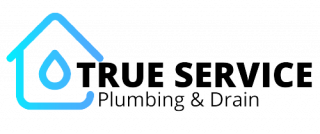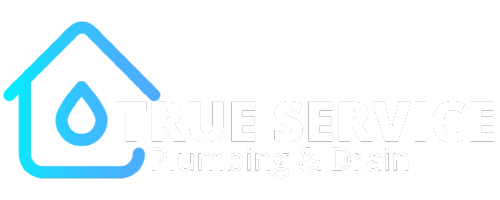Chemical drain cleaners like Drano are a common go-to solution for clogged drains, but does Drano damage pipes?
Many homeowners assume it’s a quick fix, but the truth is, these chemicals can do more harm than good.
Understanding how Drano works, its effects on your plumbing system, and safer alternatives can help you avoid costly repairs.
What Is Drano and How Does It Work?
Drano is a chemical drain cleaner designed to dissolve clogs caused by hair, grease, soap scum, and food particles.
It contains powerful chemicals, including:
- Sodium hydroxide (lye): Breaks down organic materials.
- Sodium hypochlorite (bleach): Dissolves grime and eliminates odors.
- Aluminum: Creates a reaction that generates heat, helping dissolve blockages.
While these chemicals are effective, they can also create long-term issues for your plumbing system.
Can Drano Damage Your Pipes?
Yes, Drano can cause serious damage to your plumbing over time.
The heat and caustic reactions that make it effective against clogs also make it harsh on your pipes.
How Does Drano Affect Different Types of Pipes?
- PVC Pipes: The heat generated can soften or weaken plastic pipes, leading to warping or leaks.
- Metal Pipes: Over time, chemical exposure can corrode cast iron, galvanized steel, or copper pipes.
- Older Plumbing Systems: If your home has aging pipes, the harsh chemicals can accelerate deterioration, increasing the risk of cracks or complete failure.
Where Does Drano Cause the Most Damage?
- P-Traps and Joints: These areas are prone to chemical buildup, which can cause pipe erosion.
- Septic Systems: Drano can kill beneficial bacteria that help break down waste, disrupting the balance of your system.
- Garbage Disposals: If used in a kitchen drain with a disposal unit, the chemicals can corrode the blades and internal components.
When Should You Avoid Using Drano?
There are specific situations where Drano should never be used:
- Your home has aging or fragile pipes – The risk of damage is higher.
- You have a complete blockage – The chemicals may sit in the pipes, causing further deterioration.
- If you use it frequently – Repeated use weakens pipes over time.
- If you’ve recently used another chemical cleaner – Mixing chemicals can result in hazardous reactions.
Who Is Most at Risk for Pipe Damage from Drano?
Certain homeowners should be especially cautious about using Drano:
- Those with older homes – Pre-1980s plumbing is more vulnerable to corrosion.
- Anyone with PVC or PEX pipes – Heat and chemical reactions can weaken plastic-based pipes.
- Homeowners with septic systems – Harsh chemicals can disrupt the system’s natural balance.
- Those experiencing frequent clogs – This often indicates a deeper plumbing issue that Drano won’t fix.
What Are Safer Alternatives to Drano?
Instead of relying on harsh chemicals, try these safer, more effective drain-cleaning methods:
Natural DIY Methods
- Baking soda and vinegar: Pour one cup of baking soda followed by one cup of vinegar down the drain. Wait 15 minutes, then flush with hot water.
- Boiling water flush: Great for grease clogs in kitchen sinks.
- Plungers and drain snakes: Effective for most minor clogs without causing damage.
Mechanical Drain Cleaning Options
- Drain augers: A professional-grade tool that clears deeper clogs.
- Wet/dry vacuums: Can be used to suck out blockages in stubborn drains.
Enzyme-Based Drain Cleaners
- These break down organic matter without harming pipes.
- Safer for septic systems and the environment.
- Ideal for regular maintenance to prevent buildup.
How to Prevent Clogs Without Using Chemical Drain Cleaners
Taking proactive steps can reduce the need for harsh drain cleaners altogether:
- Use drain screens to catch hair and debris in sinks and showers.
- Avoid pouring grease down the drain – Instead, dispose of it in a sealed container.
- Flush drains regularly with hot water to prevent buildup.
- Clean your drains monthly using a baking soda and vinegar mixture.
When to Call a Professional Plumber Instead of Using Drano
Some plumbing issues require professional intervention.
If you notice any of the following, it’s time to call an expert:
- Recurring clogs – If the same drain gets blocked frequently, there may be an underlying issue.
- Slow drainage throughout the home – This could indicate a main sewer line problem.
- Foul odors from drains – Could be a sign of bacteria buildup or a damaged pipe.
- Standing water in sinks or tubs – This suggests a deeper clog that Drano won’t fix.
A licensed plumber can diagnose and resolve these issues safely without damaging your pipes.
Final Verdict – Is Drano Worth the Risk?
While Drano can clear minor clogs, the risks far outweigh the benefits.
The harsh chemicals can damage pipes, harm septic systems, and pose health risks.
Instead, opt for safer alternatives like plungers, drain snakes, and enzyme-based cleaners.
And if you’re dealing with persistent plumbing issues, professional help is the best solution.
Professional Drain Cleaning with True Service Plumbing
Clogged drains shouldn’t be a recurring headache.
True Service Plumbing provides expert drain cleaning solutions for homeowners in Toronto and the GTA.
Whether it’s a stubborn clog, slow drainage, or a plumbing emergency, our licensed professionals ensure safe and effective results.
Don’t risk damaging your pipes with chemical cleaners.
Contact True Service Plumbing today for professional, long-lasting plumbing solutions.


